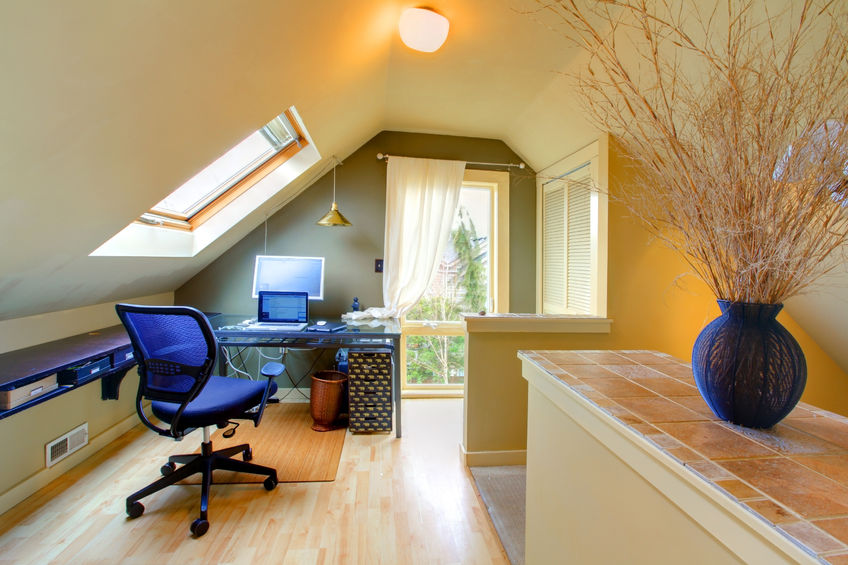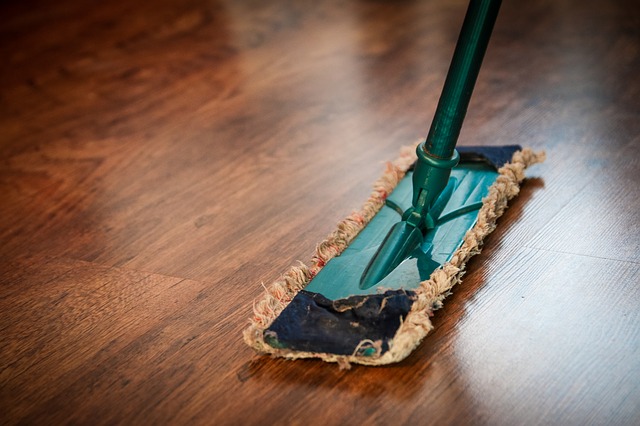“Can I write it off?” I can’t tell you how many times I hear that in my San Rafael office. Calculating deductions is the job of an Accountant or Tax Preparer but the bookkeeper is the first line of defense in preparing the source info, so I keep myself educated on the latest and most unique ways to approach tax deductions for home offices.
How to Determine Office Tax Deductions
Almost anything can be considered a home office tax deduction — if there is a justifiable business reason for it. This often comes down to the specifics of the home business. For example, a screenwriter can be justified in writing off expenses related to her craft — not just a laptop, but anything that might inspire a story such as a Netflix subscription or the latest bestsellers. Similarly, a dog trainer can probably write off expenses for their furry companion due to their relation to business (building a good relationship is expensive, after all).
Anything that falls into the realm of touching your business is a possibility as long as it causes your bookkeeper (like ours!) to nod and say “Yeah, that makes sense.” Even so way-out-there examples eventually will get the thumbs up from the IRS, so start thinking outside the box for non-standard deductions — and of course, talk to your bookkeeper and Accountant about them!
Five Surefire Home Office Tax Deductions
Of course, we should start things off with surefire bets. The following five items are standard home office tax deductions. For people who are new to running a home office, these items may feel like a light bulb turning on — they make sense, of course, but if you haven’t changed your mindset to constantly thinking about home office tax deduction possibilities, you may not necessarily recognize them right away. Start tallying your receipts and expenses for these items and get them to your bookkeeper right away.
Tax Deduction #1: Home Payment Logistics
Logistical home expenses are perhaps the easiest thing to write off when it comes to finding deductions for your home office. There’s no digging up receipts or scratching your head looking at credit card bills for these types of things; if you own a home, you’ve already got annual paperwork for things like property tax and Homeowner’s Association dues. (If you don’t, you better get on it quick; those things are important). These are some of the first things I ask for as a bookkeeper because there’s nothing unique about it; it’s something you have to do as a homeowner, so the money is there to be tallied.
Let’s say you use 25% of your home for business. That could mean a dedicated office, garage space for equipment, and perhaps another half of a room for storing some files or other business-related items. That means that 25% of your property tax is a business-related expense.
It doesn’t stop there — the interest you pay on your home’s mortgage is also a necessary part of keeping your home office going, so 25% of that is also a write off. Even your Homeowner’s Association fees count, as they go hand-in-hand with the annual logistical payments of keeping your home ready for both living and working. Thus, 25% of that instantly gets written off.
What if you rent instead of own? That’s fine too — your monthly rent counts, so 25% of your rent can instantly be counted as deductions. If you have renter’s insurance or any other type of logistical home payment associated with renting, that also should get lumped in. After all, you’re paying for your place to work as well as sleep.

Tax Deduction #2: Office Furniture
Every office needs furniture. That can mean many different things depending on what your business entails but whether it’s bookcases, ergonomic sit/stand desks, special workstations for unique hardware, or something else, as long as you use it in your home office, it counts as a tax deduction. That also means that if you don’t mind putting the money upfront, you can always write off nicer versions of various items. Yes, if you’ve always wanted a fancy leather office chair, that’s as much of a write off as a standard desk chair.
Of course, this extends beyond the standards. Wall decorations, security safes, computer stands, even extra chairs or a sofa can all be write offs in your home office. The justification is simple: if it’s something that you would have in your office regardless of whether that’s in your home or outside your home, it should count.
Tax Deduction #3: Security
Think about the valuables in your home regarding your business. Your laptop contains your vital information, as does your phone and tablet. You may have inventory in your home office closet, in addition to hard copies of paperwork. Petty cash, checkbooks, business credit cards, all of these things need to be protected. Thus, home security counts for a lot. Simply tally the percentage of your home office space and apply it to your home security expenses.
So what counts as this? Home alarm systems are certainly part of it. Internal camera systems count too, as do hardware and installation services of door locks. Other things added to protect your home, such as shatter-resistant window cling film, motion sensor lights, and security elements on your fence and backyard all fall into this category. If you have a dog, you may even be able to write off a portion of your furry friend’s care and maintenance expenses — after all, police often consider dogs to be the best form of home security.
Tax Deduction #4: Utilities
Similar to property tax and mortgage interest, your monthly utility expenses can also be proportionally deducted. This applies to pretty much all of your regular utilities: electric, gas, and water. If you still have a landline used to make business calls, that will count as well. Internet services count too, though talk with your bookkeeper and CPA about how much the percentage should be. It may be the same percentage as the rest of your utilities or it may be less; that depends on your usage and the nature of your business.
There is some question about entertainment utilities, such as satellite TV. Chances are, these don’t apply to any deductions. However, if you work in the entertainment industry or use this as entertainment for waiting clients, they may count as deductions. The best thing to do is to ask your bookkeeper and CPA about it.
Tax Deduction #5: Cleaning Service
Corporate offices deduct cleaning services as business expenses and you can too. You may consider housekeeping and cleaning services just part of your family expenses, but if the service dusts, vacuums, and scrubs in your home office, then it is impacting your business (seriously, don’t we all work better with a clean work environment?) so be sure to add this into your tally of write offs.
Does the gardener/landscaper count as well? In some cases, yes — to a limited amount. It’s very circumstantial, so it depends on a variety of factors, such as orientation of your home office, type of business, etc. As with some of the more gray-area items above, it’s best to ask your CPA and bookkeeper what they think and make a judgement call from there.
Can You Write It Off?
Wondering if you can write off this or that for your home office? I offer free consultations at my San Rafael office — get in touch and we can talk about this and any other bookkeeping concerns you might have.
- Preparing Your Tax Documents - February 1, 2024
- Making of a Successful Team Environment - December 31, 2023
- Got a Mistake on Your Tax Returns? - September 3, 2023


